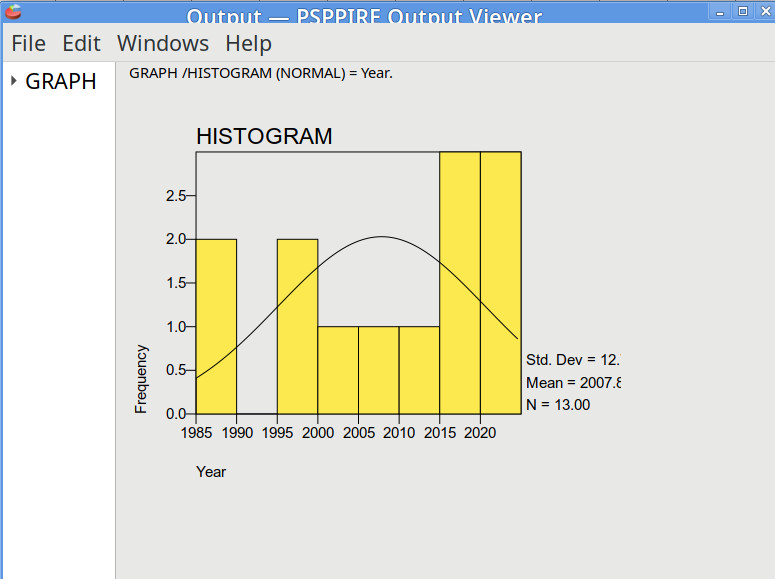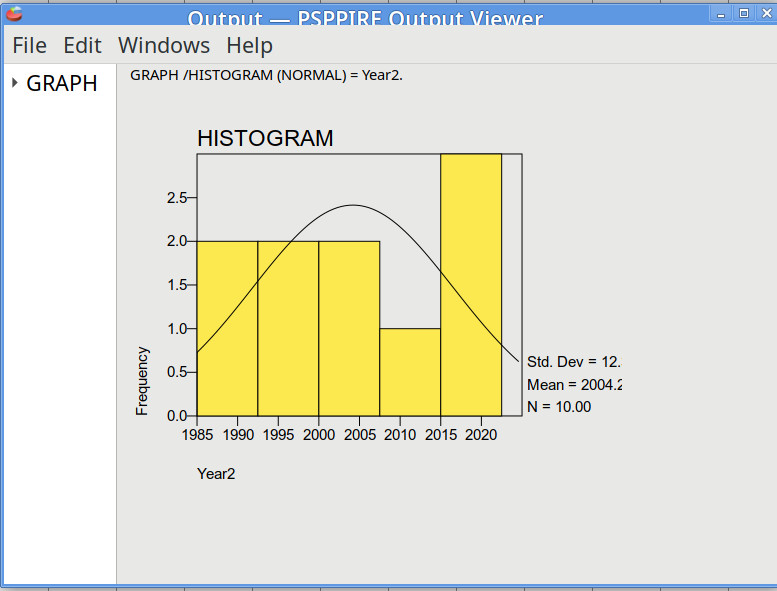Christians Who Suffered Ridicule in High School
for their Faith
Introduction
I recently encountered a high school teacher that claimed "no one", not teachers, not curriculum, and not their peers, is making fun of Christian high school students for their faith. This person on Reddit was very disrespectful in the process of them claiming that this doesn't happen. So instead of arguing, I decided to scientifically test their assertion. Of course, their statement is already false because they engaged in splitting: surely there is at least one person in the universe in the last century that has received ridicule for their faith, but I digress.Given a lack of funding, I cannot run a grand scale scientific research project on this topic. However, I have Survey Monkey, so I decided to do my very best to test this theory. What follows is my best attempt at running a scientific research project given meager resources and a lack of time.
My null hypothesis is that, to all the questions below, less than 5% of Christians will say they have been insulted for their faith. Thus my hypothesis is that someone, whether teacher, curriculum, or a fellow student, insulted at least more than 5% of Christians in connection with their beliefs. It would need to be above 5% to be significant, in my estimation.
Methods
Survey Monkey was utilized, and various social media outlets on Reddit and Facebook were used to distribute this survey. The specific outlets are not listed, to preserve anonymity. Twenty-six persons voted in a survey that consisted of the following questions:- This survey is for people who were Christians while in public (not private) high school Were you a Christian while you were attending high school, and did you also attend public (not private) high school?
- Did any high school curriculum imply or state that it is unfavorable in any way to believe in God?
- Did any high school teacher imply or state that it is unfavorable in any way to believe in God?
- Did any high school student imply or state that it is unfavorable in any way to believe in God?
- Did any other person or thing related to high school state or imply that it is unfavorable in any way to believe in God? Please be specific. All comments will remain anonymous, but please do not mention specific names or places.
- Please input the approximate year you experienced any unfavorable statements or comments about religious belief, or if you did not experience this, any year in which you were enrolled in high school. Month and day do not matter, only year.
The 6th question attempted to provide a possible connection between when the individual went through high school and when/if the ridicule occurred. Only 15 people provided responses.
This survey was created on 10 January, 2020, so it is possible that responses of 2020 may be someone clicking through the question, just clicking today to complete the survey. Its also possible that they truly graduate some time in 2020. It is also possible that they selected 2020 because they did not want to provide the actual year they are graduating. This question, 6, will be provided with both the 2020 results included and the 2020 results filtered out, to analyze the data.
Briefly, the limitations with this survey are tied to a low data point result (less than 40) and the anonymity factor. As well, there is the matter of it being a self-reported survey. Finally, because this is high school, it is possible that the normal degradation of human memory over time applies.
Results
The author manually entered this data into GNU PSPP, a free
IBM SPSS clone (partial).The first data point analyzed was the 6th question: the year. Using all values, the result was a mean (average) of 2007.85. The mode (most common answer) was 2020, but given that the survey occurred in 2020, the author decided that this might be a "lazy" result (i.e. clicking the calendar and then clicking "today"), so another data analysis will occur in the next paragraph. Standard deviation is 12, and the range is 35. For the most part, this makes sense.

However, if we eliminate 2020, the mean (average) becomes 2004, with no mode (i.e. no repeated numbers). Standard deviation is still 12 (rounding off the decimals), so analyzing the data without 2020 doesn't seem to make a huge effect. I offer both only because I know some might dispute one but not the other.

The first four questions are as follows:
- Christians in public school: 24 of the 26 respondents
- Curriculum ridicule: yes 5 no 21
- Teacher ridicule: yes 7 no 19
- Student ridicule: yes 15 no 11
Discussion
It is clear based on this data that students
may have perceived ridicule from curriculum (19%), teachers (27%)
and fellow student (58%) that, indeed, some Christian high school
students are demeaned for their faith in God. And given that
the mean year of occurrence is 2004 or 2007 (whether you decide to
remove or keep what might be lazy data inputs), this is a recent
phenomenon.The existence of two individuals who were not Christians in public school (Q1) could be considered as possibly skewing the results of questions 2-4. If, however, we err on the side of caution and eliminate two positive replies from questions 2, 3, and 4, the results are still significant: curriculum 11%, teachers 19%, and peers 50%.
However, there are caveats:
First, in an effort to find Christians to take this survey, Christian social media outlets (subreddits, groups, etc) were utilized. This might cause a small influence of selection bias, but the author believes it was appropriate due to the surveys intent.
Second, a survey with fewer than 40 results limits the generalizability of the study.
Third, social media inputs should be held with slight skepticism due to the nature of social media itself, such as the diffusion of responsibility, etc.
Fourth, it is possible given question 2, perceiving ridicule in high school textbooks (one might assume science was the subject of those textbooks), that this question might represent the percentage of Christians who perceive ridicule when no ridicule exists. The author admits that this might seem like a wild hypothesis, but that it is also a valid criticism one might have when one reads the results. The author is a Christian and has met some other Christians who might fit this description. If we then err on the side of caution and discount (second data analysis above) 11% off of all other questions as a hypothetical "over-reactive" or "false perception" group, there is still a significant number of individuals reporting ridicule from teachers (8%) and peers (39%).
The author's goal was merely to demonstrate that a significant number of Christian students are still suffering ridicule for their faith. The existence of ridicule in education systems, and in social relationships themselves, make up for some of the limitations of the current study. Indeed, the author had assumed, prior to engaging in this study, that it is "common sense" that students receive ridicule as part of the general education experience. However, the truth is discovered through scientific study. The current study cannot be generalized due to limitations, but the author believes the current study is robust enough to at least demonstrate that Christian students do, indeed, suffer ridicule for their faith within the public education system.
Conclusion
Further testing would need to be performed in
order to determine how widespread this ridicule is, and the
specific nature of the ridicule. As well, the author
recommends that further study on the perception versus reality of
ridicule in Christian adolescent students be studied
further. The survey did reveal that several individuals, on
question 6, pointed to a common area of ridicule, in that
specifically their intelligence is being targeted in this ridicule
they are experiencing. The author's hope is that he will get
a chance to study this specific area of ridicule they are
experiencing. But for now, the only firm conclusion that
this survey provides is that Christians are indeed experiencing
ridicule in high school for their religious beliefs. Thus
the claim that "no" Christians in public school suffer ridicule
for their faith is considered sufficiently disproved.The author hopes that the individual who claimed they are currently a high school teacher in public school, who claimed "no" Christians are ridiculed for their faith, reads this study and changes their perspective.
Side Note
As a side note, the author provides the following answers to another question on this survey. One question that could not be completely studied scientifically due to the current limitations read as such:"Did any other person or thing related to high school state or imply that it is unfavorable in any way to believe in God? Please be specific. All comments will remain anonymous, but please do not mention specific names or places."
The raw results are below. The author strongly recommends giving them at least the benefit of the doubt. Those results that are simply "No" were omitted.
Just to take God out of the pledge of allegiance
Not to my knowledge. There were nonbelievers, but they kinda just let everyone do their own thing
You wont be ridiculed if you learn to respect people and not waste a moment of their time expressing beliefs. You want to believe in unfalsifiable claims about the afterlife, etc. - go for it, you have every right, but you dont have the right not to be made fun of when you open your mouth about some ancient religion that shames people and was understandably practiced by people whom were very lucky to make it past childbirth and thought people could come back from the dead. Save your mental incoherence for yourself.
it was mainly teachers and science courses, there was only a handful of teachers I know to be christians, and who werent afraid to talk about it
No really no. Even though I answered yes to #4, I don't actually remember any specific instance, just that I'm sure someone said it at some point.
Regarding #4: I'm sure it's possible that some student(s) did during my time there, but I don't really remember. I was in High School from 1998-2002, so it was a while ago.
Me, until I became a Christian at the end of my sophomore year. Otherwise, I went to a really large school, and most people were busy just doing their thing. My bio teacher stayed neutral and required us to learn material, but not have to believe in evolution. She also never said anything negative. My world history teacher also stayed pretty neutral, when going through world religions. I feel like if anyone had anything awful to say it was usually parents.
Not in those words exactly. The only thing that I encountered was a guy I had a crush on wouldn't consider me an interest because of my beliefs. He made a comment that I was too much of a good girl and that my daddy was a preacher, which my dad wasn't, but he assumed to know who I was and what my family was about before getting to truly know me.


